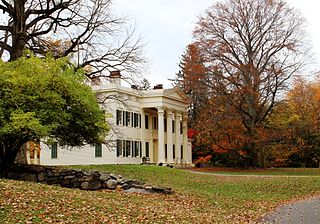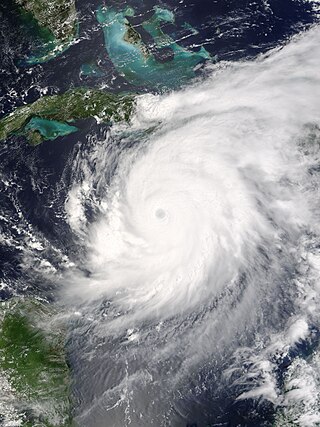The history of Grenada in the Caribbean, part of the Lesser Antilles group of islands, covers a period from the earliest human settlements to the establishment of the contemporary nationstate of Grenada. First settled by indigenous peoples, Grenada by the time of European contact was inhabited by the Caribs. British colonists killed most of the Caribs on the island and established plantations on the island, eventually importing African slaves to work on the sugar plantations.

The economy of Grenada is largely tourism-based, small, and open economy. Over the past two decades, the main thrust of Grenada's economy has shifted from agriculture to services, with tourism serving as the leading foreign currency earning sector. The country's principal export crops are the spices nutmeg and mace. Other crops for export include cocoa, citrus fruits, bananas, cloves, and cinnamon. Manufacturing industries in Grenada operate mostly on a small scale, including production of beverages and other foodstuffs, textiles, and the assembly of electronic components for export.

The United States, Venezuela, Cuba, and the People's Republic of China have embassies in Grenada. Grenada has been recognized by most members of the United Nations and maintains diplomatic missions in the United Kingdom, the United States, Venezuela, and Canada.

St. George's is the capital of Grenada. The city is surrounded by a hillside of an old volcano crater and is located on a horseshoe-shaped harbour.

Rye is a coastal city in Westchester County, New York, United States, located near New York City and within the New York City metropolitan area. It is separate from the Town of Rye, which has more land area than the city. The City of Rye, formerly the Village of Rye, was part of the Town until it received its charter as a city in 1942, making it the youngest city in the State of New York. Its population density for its 5.85 square miles of land is roughly 2,729.76/sq mi.

Keith Claudius Mitchell is a Grenadian politician who served as Prime Minister of Grenada from 1995 to 2008 and from 2013 to 2022. He is the longest-serving Prime Minister in Grenadian history, holding the office for more than 22 years. He is currently leader of the New National Party (NNP) and has been the Leader of the Opposition in the House of Representatives of Grenada from 2008 to 2013, and again since 2022.

The governor-general of Grenada is the representative of the Grenadian monarch, currently King Charles III, in Grenada. The governor-general is appointed by the monarch on the recommendation of the prime minister of Grenada. The functions of the governor-general include appointing ministers, judges, and ambassadors; giving Royal Assent to legislation passed by the Grenadian Parliament; and issuing writs for election.

Pensacola Beach is an unincorporated community located on Santa Rosa Island, a barrier island, in Escambia County, Florida, United States. It is situated south of Pensacola in the Gulf of Mexico. As of the 2000 census, the community had a total population of 2,738. It has been described as "famous" for its ultra-white sand beaches.

The 2004 Atlantic hurricane season was a very deadly, destructive, and active Atlantic hurricane season, with over 3,200 deaths and more than $61 billion in damage. More than half of the 16 tropical cyclones brushed or struck the United States. Due to the development of a Modoki El Niño – a rare type of El Niño in which unfavorable conditions are produced over the eastern Pacific instead of the Atlantic basin due to warmer sea surface temperatures farther west along the equatorial Pacific – activity was above average. The season officially began on June 1 and ended on November 30, though the season's last storm, Otto, dissipated on December 3, extending the season beyond its traditional boundaries. The first storm, Alex, developed offshore of the Southeastern United States on July 31, one of the latest dates on record to see the formation of the first system in an Atlantic hurricane season. It brushed the Carolinas and the Mid-Atlantic, causing one death and $7.5 million (2004 USD) in damage. Several storms caused only minor damage, including tropical storms Bonnie, Earl, Hermine, and Matthew. In addition, hurricanes Danielle, Karl, and Lisa, Tropical Depression Ten, Subtropical Storm Nicole and Tropical Storm Otto had no effect on land while tropical cyclones. The season was the first to exceed 200 units in accumulated cyclone energy (ACE) since 1995, mostly from Hurricane Ivan, which produced the highest ACE out of any storm this season. Ivan generated the second-highest ACE in the Atlantic, only behind the 1899 San Ciriaco Hurricane.

Hurricane Ivan was a large, long-lived, and devastating tropical cyclone that caused widespread damage in the Caribbean and United States. The ninth named storm the sixth hurricane and the fourth major hurricane of the active 2004 Atlantic hurricane season, Ivan formed in early September, and reached Category 5 strength on the Saffir–Simpson Hurricane Scale (SSHS). Ivan caused catastrophic damage in Grenada as a strong Category 3 storm, heavy damage in Jamaica as a strong Category 4 storm, and then severe damage in Grand Cayman, Cayman Islands, and the western tip of Cuba as a Category 5 hurricane. After peaking in strength, the hurricane moved north-northwest across the Gulf of Mexico to strike Pensacola/Milton, Florida and Alabama as a strong Category 3 storm, causing significant damage. Ivan dropped heavy rain on the Southeastern United States as it progressed northeastward and eastward through the Eastern United States, becoming an extratropical cyclone on September 18. The remnant low of the storm moved into the western subtropical Atlantic and regenerated into a tropical cyclone on September 22, which then moved across Florida and the Gulf of Mexico, and then into Louisiana and Texas, causing minimal damage. Ivan degenerated into a remnant low on September 24, before dissipating on the next day.

The Library of Parliament is the main information repository and research resource for the Parliament of Canada. The main branch of the library sits at the rear of the Centre Block on Parliament Hill in Ottawa, Ontario. The library survived the 1916 fire that destroyed Centre Block. The library has been augmented and renovated several times since its construction in 1876, the last between 2002 and 2006, though the form and decor remain essentially authentic. The building today serves as a Canadian icon, and appears on the obverse of the Canadian ten-dollar bill.

Carriacou is an island of the Grenadine Islands. It is a part of the nation of Grenada and is located in the south-eastern Caribbean Sea, northeast of the island of Grenada and the north coast of South America. The name is derived from the Kalinago language Kayryouacou.

In September 2004, Hurricane Ivan caused significant effects in the Lesser Antilles and South America, including 44 deaths and over $1 billion in damage (2004 USD), primarily in Grenada where it was considered the worst hurricane in nearly 50 years. Hurricane Ivan developed from a tropical wave on September 2 and rapidly intensified to become a major hurricane, passing through the southern Lesser Antilles on September 7 with winds of 125 mph (201 km/h). At the time, its typical storm force winds extended outward up to 160 miles (260 km) with hurricane-force winds outward to 70 miles (110 km), and the northern portion of the eye passed over Grenada.

The monarchy of Grenada is a system of government in which a hereditary monarch is the sovereign and head of state of Grenada. The current Grenadian monarch and head of state, since 8 September 2022, is King Charles III. As sovereign, he is the personal embodiment of the Grenadian Crown. Although the person of the sovereign is equally shared with 14 other independent countries within the Commonwealth of Nations, each country's monarchy is separate and legally distinct. As a result, the current monarch is officially titled King of Grenada and, in this capacity, he and other members of the royal family undertake public and private functions domestically and abroad as representatives of Grenada. However, the King is the only member of the royal family with any constitutional role.

Grenada is an island country of the West Indies in the eastern Caribbean Sea. The southernmost of the Windward Islands, Grenada is directly south of Saint Vincent and the Grenadines and about 100 miles (160 km) north of Trinidad and the South American mainland.

The China State Construction Engineering Corporation is a Chinese state-owned construction company headquartered in Beijing. It the largest construction company in the world by revenue and the 8th largest general contractor in terms of overseas sales, as of 2020. In 2023, the company was ranked 66th in the Forbes Global 2000.

Mrs. Kasha Davis is the stage name of Edward Paul Popil Jr., an American drag queen, actor and television personality from Scranton, Pennsylvania. She is best known for competing on the seventh season of RuPaul's Drag Race and the eighth season of RuPaul's Drag Race All Stars. After appearing on the reality television show, Mrs. Kasha Davis toured internationally, released several musical singles, and performed in film, television and theatre.

The nations of Grenada and Mexico established diplomatic relations in 1975. Both nations are members of the Association of Caribbean States, Community of Latin American and Caribbean States, Organization of American States and the United Nations.

The New Parliament Building in St. George's, Grenada is the home of the Parliament of Grenada. It was built to replace York House, the previous Parliament building, which was destroyed by Hurricane Ivan in 2004. The new building is situated on Mount Wheldale, overlooking the city of St. George's and its bay.
Royal tours of Antigua and Barbuda by its royal family have been taking place since the 20th century. Elizabeth II, Queen of Antigua and Barbuda, visited the country thrice: 1966, 1977, and 1985.


















